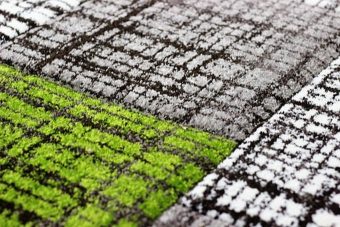
Aquafil has announced plans to invest $10m in opening its first carpet recycling facility in the US, in what the Italian company hopes will be the first of many plants across North America.
In addition to enhancing its original “pioneering” ECONYL regeneration technology for recovering nylon from old carpets, swim suits and fishing nets for use in new products, the company this week announced it would be using this system at a new plant it plans to open in Phoenix, Arizona.
The proposed facility, dubbed ‘Aquafil Carpet Recycling (ACR) #1’, will have the capacity to divert 35 million pounds of carpet from landfill each year for regeneration into products such as swimwear, luxury fashion or even new carpets.
Aquafil CEO Giulio Bonazzi said the ECONYL system was the only technology in the world capable of regenerating Nylon 6, a form of nylon commonly used in carpets, sportswear and other textiles. Four billion pounds of Nylon 6 is discarded in US landfills each year.
“We’re not comfortable with the status quo – in this case that less than five per cent of carpet waste is recycled,” said Bonazzi. “We know Nylon 6 waste can be powerful with the proper technology, and we’re honoured to call Phoenix home to that power with ACR #1.”
Recycling carpets has historically been challenging because they are made up of many different materials and often use designs that do not allow for their easy separation, but Aquafil said its system is designed to get around these issues without sacrificing quality.
The company has partnerships with more than 160 brands, including Adidas, Speedo, Volcom and Stella McCartney, along with carpet manufacturers such as Interface, Milliken, Mannington and Tarkett Group.
“We want to recycle as much carpet as possible by establishing a number of these facilities throughout the US,” said Bonazzi. “This activity will be closely connected to our fishing nets recycling efforts, which diverts millions of pounds of waste from our oceans.”
Source: businessgreen.com




